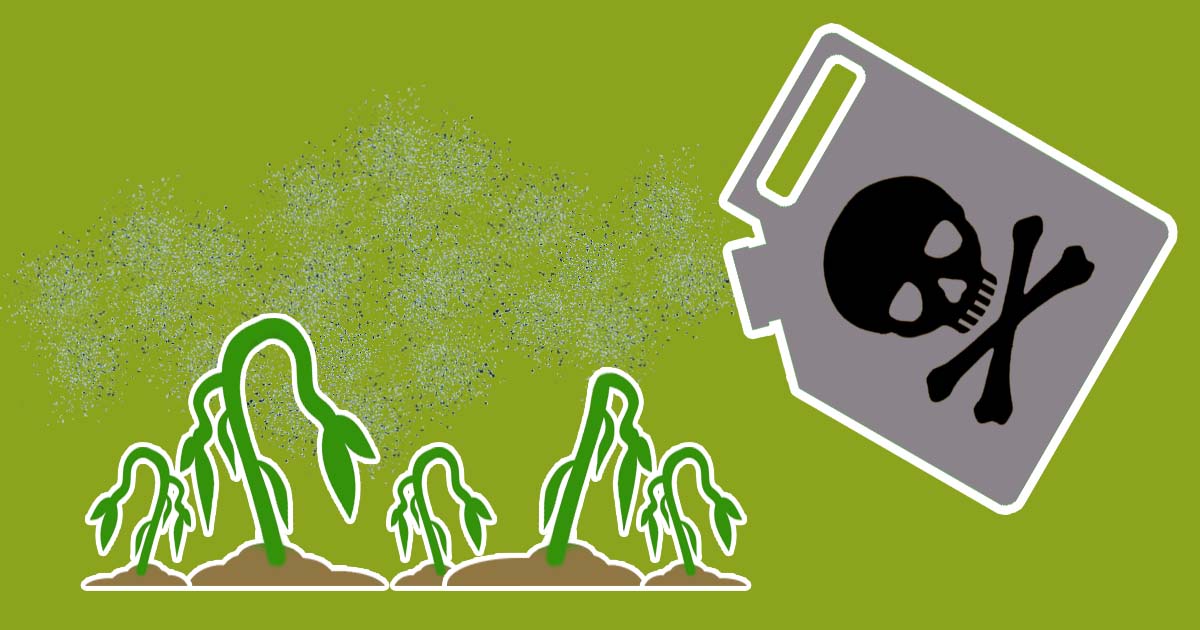
Glyphosate is a so-called broad-spectrum herbicide and has been used in conventional agriculture since 1975 to speed up the harvesting of crops, but above all as a herbicide. The best-known glyphosate product with the name "Roundup" was launched by Monsanto in the 1970s. Glyphosate also kills and damages other plants and animals and is suspected of being carcinogenic for humans.
Glyphosate inhibits the metabolism of crops. Important enzymes in the plant are eliminated, which normally make it resistant to diseases from the soil. The glyphosate penetrates to the roots and from there into the surrounding soil. It stimulates the growth of a fungus plexus which kills all undesirable plants.
Glyphosate accumulates more and more in the soil and has a negative effect for decades on any other plant that is to be cultivated there and has not been genetically adapted to this poison. It increases the susceptibility of all plants to pathogens and reduces the availability of important nutrients. The latter are particularly important for maintaining resistance mechanisms to pathogens.
Already 70% of humans have low concentrations of glyphosate in their urine (source: 3sat). Glyphosate is found not only in urine, but also in the entire body (including the brain) and in breast milk. There are several assessments on the danger of glyphosate to humans and the environment. Some of the studies are secret because they were carried out by the industry itself, but these have been taken into account in the BfR's risk assessment. The interests of the industry, who want to sell a product or the active ingredient, are obvious. The positive assessment of the EU Commission's assessment report on glyphosate is largely based on secret studies from industry. EU experts admit to everyone that they have adopted large parts of the assessment report from industry (source: tagesschau.de).
Translated with: https://www.deepl.com/translator
